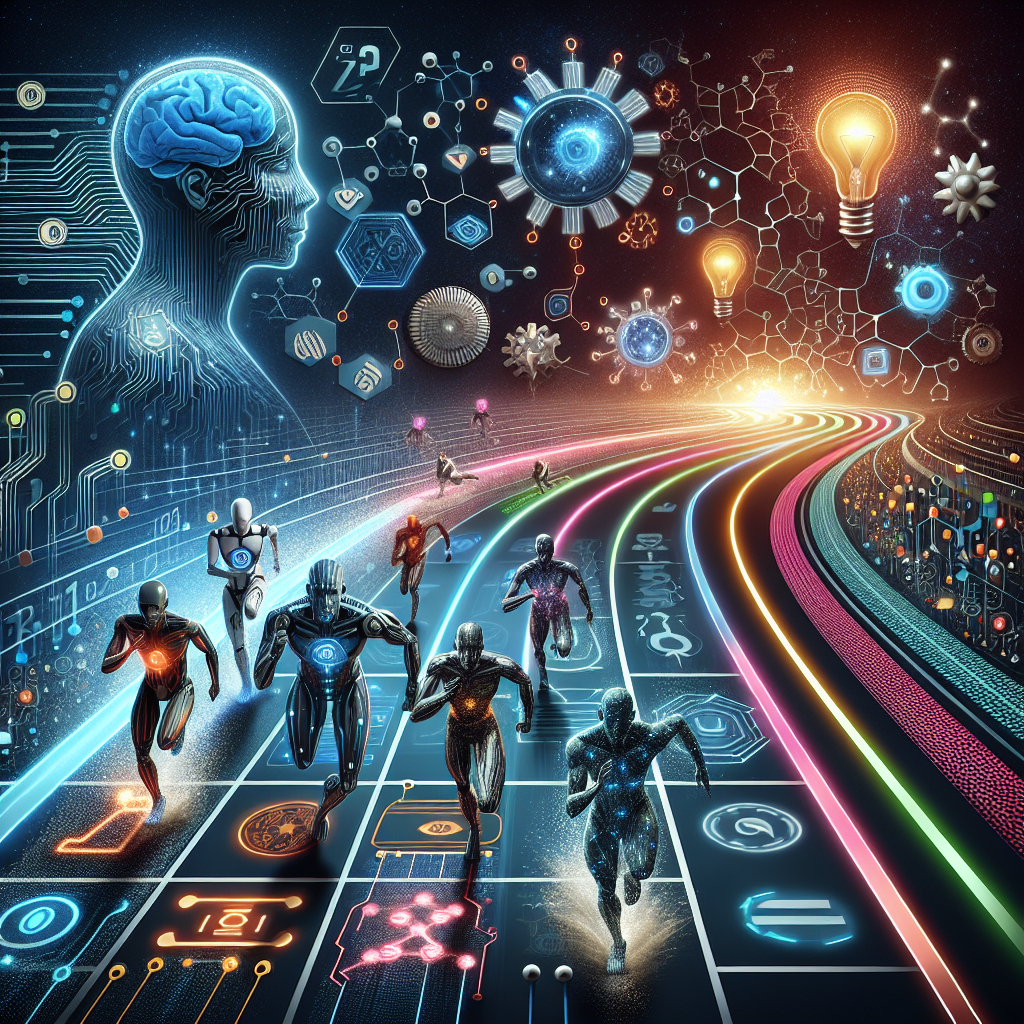The Race to Achieve Artificial General Intelligence: Who Will Win?
Artificial General Intelligence (AGI) has long been a goal for researchers and scientists in the field of artificial intelligence. AGI refers to a machine that can understand, learn, and apply knowledge in a way that is indistinguishable from human intelligence. While we have made significant strides in developing narrow AI systems that can perform specific tasks, such as playing chess or recognizing speech, achieving AGI remains an elusive goal.
The race to achieve AGI is heating up as more and more companies and research organizations pour resources into developing the technology. But who will ultimately win the race to achieve AGI? In this article, we will explore the current state of AGI research, the challenges that researchers face, and the potential implications of achieving AGI.
Current State of AGI Research
While significant progress has been made in the field of artificial intelligence in recent years, we are still far from achieving true AGI. Most AI systems today are narrow AI, meaning they are designed to perform specific tasks and do not possess the ability to generalize their knowledge to new situations. For example, a speech recognition system may be able to accurately transcribe spoken words, but it lacks the ability to understand the meaning behind those words.
Researchers are working on developing AI systems that can learn and adapt in a more human-like way. One approach to achieving AGI is through the use of deep learning, a branch of machine learning that uses neural networks to simulate the human brain. Deep learning has been successful in tasks such as image recognition and natural language processing, but it still falls short of true AGI.
Another approach to achieving AGI is through the use of symbolic AI, which involves representing knowledge in a structured way that can be manipulated by algorithms. While symbolic AI has been around for decades, it has fallen out of favor in recent years in favor of more data-driven approaches like deep learning. However, some researchers believe that a combination of symbolic and connectionist approaches may be necessary to achieve AGI.
Challenges in Achieving AGI
There are several key challenges that researchers face in their quest to achieve AGI. One of the biggest challenges is the lack of understanding of how human intelligence works. While we have made significant progress in understanding the brain, we are still far from fully understanding how it generates intelligence.
Another challenge is the lack of computational power. While AI systems have become increasingly powerful in recent years, they still fall far short of the human brain in terms of processing power and efficiency. Achieving AGI will likely require significant advances in computer hardware and algorithms.
Ethical considerations are also a significant challenge in the race to achieve AGI. As AI systems become more intelligent, they have the potential to outperform humans in a wide range of tasks, raising concerns about the impact on the job market and society as a whole. Researchers must grapple with questions of how to ensure that AI systems are used ethically and responsibly.
Implications of Achieving AGI
The potential implications of achieving AGI are vast and far-reaching. On the one hand, AGI has the potential to revolutionize society in ways that we can only begin to imagine. AGI could lead to breakthroughs in fields such as healthcare, transportation, and education, improving the quality of life for billions of people around the world.
On the other hand, AGI also poses significant risks. As AI systems become more intelligent, they have the potential to outperform humans in a wide range of tasks, leading to widespread job displacement and economic disruption. There are also concerns about the potential for AGI to be used for malicious purposes, such as autonomous weapons or surveillance systems.
Overall, the race to achieve AGI is a complex and multifaceted endeavor that will require collaboration and cooperation among researchers, policymakers, and industry leaders. While there are significant challenges to overcome, the potential rewards of achieving AGI are enormous.
FAQs
Q: When will AGI be achieved?
A: It is difficult to predict when AGI will be achieved, as it depends on a wide range of factors including advances in technology, research funding, and breakthroughs in our understanding of human intelligence. Some experts believe that AGI could be achieved within the next few decades, while others believe it may take much longer.
Q: Who is leading the race to achieve AGI?
A: There are many companies and research organizations around the world that are actively working on AGI research, including Google, Facebook, OpenAI, and DeepMind. Each of these organizations brings unique expertise and resources to the table, making it difficult to predict who will ultimately win the race to achieve AGI.
Q: What are the potential risks of achieving AGI?
A: There are several potential risks associated with achieving AGI, including widespread job displacement, economic disruption, and the potential for AGI to be used for malicious purposes. Researchers and policymakers must work together to address these risks and ensure that AGI is developed and deployed responsibly.
Q: How can I get involved in AGI research?
A: If you are interested in getting involved in AGI research, there are several ways to do so. You can pursue a degree in artificial intelligence or related fields, join a research lab or company that is working on AGI, or contribute to open-source AI projects. By getting involved in AGI research, you can help shape the future of artificial intelligence and society as a whole.
In conclusion, the race to achieve AGI is a complex and challenging endeavor that will require collaboration and cooperation among researchers, policymakers, and industry leaders. While there are significant challenges to overcome, the potential rewards of achieving AGI are enormous. By working together, we can unlock the full potential of artificial intelligence and create a brighter future for humanity.

